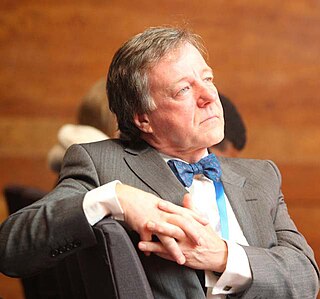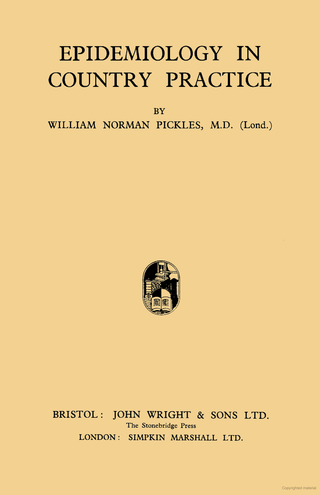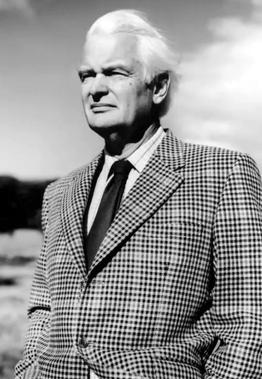Related Research Articles
In the medical profession, a general practitioner (GP) or family physician is a physician who treats acute and chronic illnesses and provides preventive care and health education to patients of all ages. GPs' duties are not confined to specific fields of medicine, and they have particular skills in treating people with multiple health issues. They are trained to treat patients to levels of complexity that vary between countries. The term "primary care physician" is more usually used in the US. In Asian countries like India, this term has been replaced mainly by Medical Officers, Registered Medical Practitioner etc.

Family medicine is a medical specialty within primary care that provides continuing and comprehensive health care for the individual and family across all ages, genders, diseases, and parts of the body. The specialist, who is usually a primary care physician, is named a family physician. It is often referred to as general practice and a practitioner as a general practitioner. Historically, their role was once performed by any doctor with qualifications from a medical school and who works in the community. However, since the 1950s, family medicine / general practice has become a specialty in its own right, with specific training requirements tailored to each country. The names of the specialty emphasize its holistic nature and/or its roots in the family. It is based on knowledge of the patient in the context of the family and the community, focusing on disease prevention and health promotion. According to the World Organization of Family Doctors (WONCA), the aim of family medicine is "promoting personal, comprehensive and continuing care for the individual in the context of the family and the community". The issues of values underlying this practice are usually known as primary care ethics.

Alan Julian Macbeth Tudor-Hart, commonly known as Julian Tudor Hart, was a general practitioner (GP) who worked in Wales for 30 years, known for theorising the inverse care law. He produced medical research and wrote many books and medical articles.
Polyclinics in England were intended to offer a greater range of services than were offered by current general practitioner (GP) practices and local health centres. In addition to traditional GP services they would offer extended urgent care, healthy living services, community mental health services and social care, whilst being more accessible and less medicalised than hospitals. A variety of models were proposed, ranging from networks of existing clinics to larger premises with several colocated general practitioner (GP) practices, more extensive facilities and additional services provided by allied healthcare professionals.

The Royal College of General Practitioners (RCGP) is the professional body for general (medical) practitioners in the United Kingdom. The RCGP represents and supports GPs on key issues including licensing, education, training, research and clinical standards. It is the largest of the medical royal colleges, with over 54,000 members. The RCGP was founded in 1952 in London, England and is a registered charity. Its motto is Cum Scientia Caritas – "Compassion [empowered] with Knowledge."

The Royal Australian College of General Practitioners (RACGP) is the professional body for general practitioners (GPs) in Australia. The RACGP is responsible for maintaining standards for quality clinical practice, education and training, and research in Australian general practice. The RACGP represents over 40,000 members across metropolitan, urban, rural and remote Australia.
A local medical committee is a statutory body in the UK. LMCs are recognised by successive NHS Acts as the professional organisation representing individual GPs and GP practices as a whole to the primary care organisation. The NHS Act 1999 extended the LMC role to include representation of all GPs whatever their contractual status. This includes sessional GP and GP speciality registrars. The LMC represents the views of GPs to any other appropriate organisation or agency.
A sessional GP is an umbrella term for GPs whose work is organised on a sessional basis, as opposed to GP partners whose contract is generally for 24-hour care. The term was first coined by the National Association of Sessional GPs (NASGP), who at the time were called the National Association of Non-Principals (NANP). After consultation with their membership, it was perceived that the term 'non-principal' was a term that defined these GPs using a negative definition rather than a positive one.

Michael Dixon LVO, OBE, FRCGP, FRCP is an English general practitioner and current Head of the Royal Medical Household. He is Chair of The College of Medicine and Integrated Health and Visiting Professor at the University of Westminster.

Sir Andrew Paul Haines, FMedSci is a British epidemiologist and academic. He was the Director of the London School of Hygiene & Tropical Medicine from 2001 to 2010.

John Henderson Hunt, Baron Hunt of Fawley, was a British general practitioner (GP) who, in 1952, co-founded the College of General Practitioners. In 1967 the royal prefix was approved and the college was renamed the Royal College of General Practitioners (RCGP). He became its president in the same year.
Michael Alexander Leary Pringle CBE is a British physician and academic. He is the emeritus professor of general practice (GP) at the University of Nottingham, a past president of the Royal College of General Practitioners (RCGP), best known for his primary care research on clinical audit, significant event audit, revalidation, quality improvement programmes and his contributions to health informatics services and health politics. He is a writer of medicine and fiction, with a number of publications including articles, books, chapters, forewords and guidelines.
Miles Bradley Mack is a British medical doctor who was chair of the Scottish Academy 2019–2022 and was chair of the Scottish council of the Royal College of General Practitioners (RCGP) 2014–2017. He works as a general practitioner in Dingwall in the north of Scotland.
John William Chisholm is a British medical doctor who works as a general practitioner (GP). Chisholm was chairman of the British Medical Association's General Practitioners' Committee (GPC) between 1997 and 2007.

Iona Caroline Heath is an English medical doctor and writer who was president of the Royal College of General Practitioners (RCGP) from 2009 to 2012.

Epidemiology in Country Practice is a book by William Pickles (1885–1969), a rural general practitioner (GP) physician in Wensleydale, North Yorkshire, England, first published in 1939. The book reports on how careful observations can lead to correlations between transmission of infective disease between families, farms and villages.

Sir Donald Hamilton Irvine was a British general practitioner (GP) who was president of the General Medical Council (GMC) between 1995 and 2002, during a time when there were a number of high-profile medical failure cases in the UK, including the Alder Hey organs scandal, the Bristol heart scandal and The Shipman Inquiry. He transformed the culture of the GMC by setting out what patients could expect of doctors and is credited with leading significant changes in the regulation of professional medicine and introducing the policy of professional revalidation in the UK.
Martin Marshall is a British medical academic and a general practitioner. He was chair of the Royal College of General Practitioners (RCGP) from 2019 until 2022. He works as a GP in Newham, East London.

William Trevor Hamilton CBE, MD, FRCP, FRCGP is an expert in cancer diagnosis. He is professor of primary care diagnostics at the University of Exeter.
Kamila HawthorneMBE FAcadMEdFLSW is a Welsh medical academic and a general practitioner. She has been a clinical professor of Medical Education, and Associate Dean for Medicine.
References
- ↑ Mosley, Charles, ed. (2003). Burke's Peerage, Baronetage & Knighthood (107 ed.). Burke's Peerage & Gentry. p. 1644. ISBN 0-9711966-2-1.
- ↑ "Research > Who is in the research team?". www.easygp.net. St Leonard's Practice Exeter. Archived from the original on 12 October 2018.
- ↑ "People of today: Denis John PEREIRA GRAY". Debrett's . Retrieved 31 May 2015.
- 1 2 "Friday 24 July 2009 afternoon ceremony". University of Exeter . Retrieved 29 December 2013.
- ↑ "The importance of empathy". Lancet. 23 July 2022. Retrieved 17 November 2022.
- ↑ "New Year's Honours". Times Higher Education . 8 January 1999. Retrieved 31 May 2015.
- ↑ "Honorary Fellows of the Academy of Medical Educators". Academy of Medical Educators (AoME). Retrieved 18 April 2022.
- ↑ "50 GPs who shaped (or will shape) general practice". Pulse. 17 March 2010. Retrieved 29 December 2013.